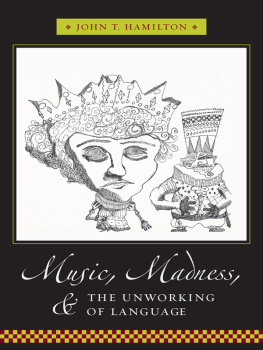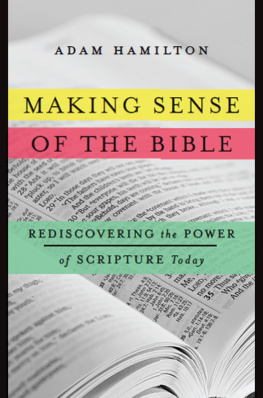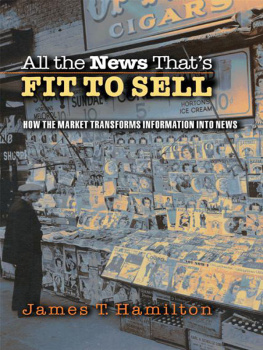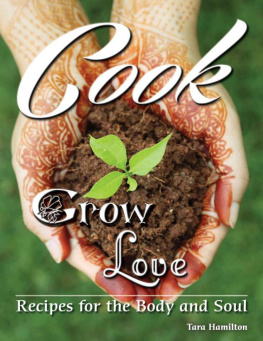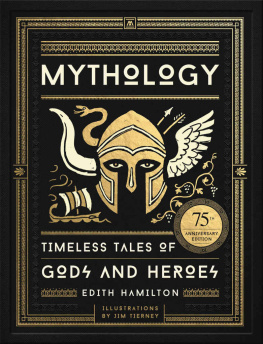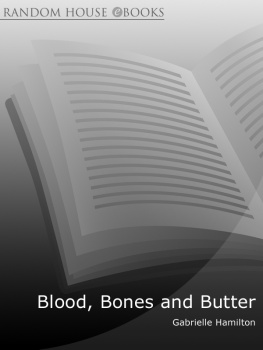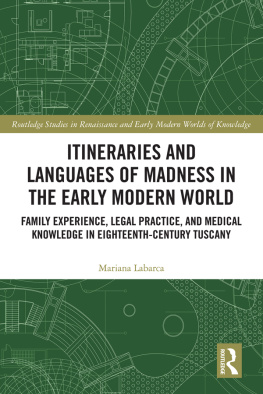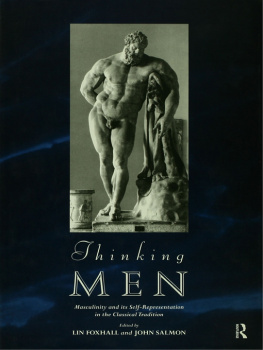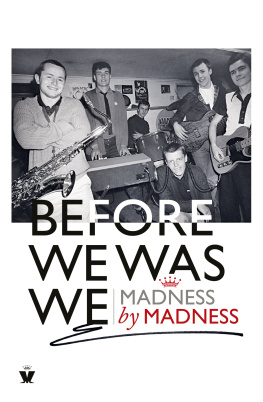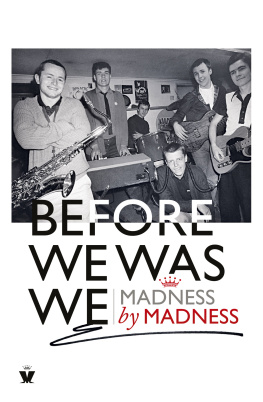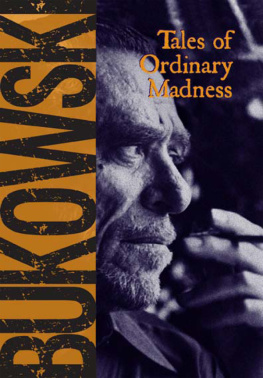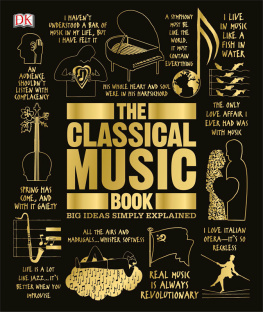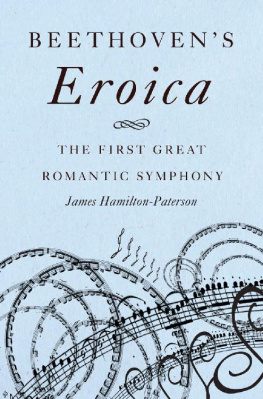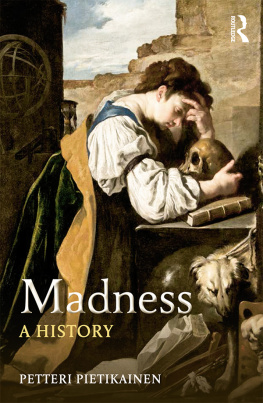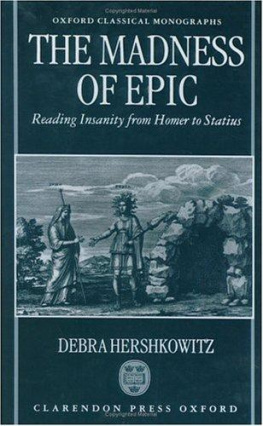Music, Madness, and the Unworking of Language
COLUMBIA THEMES IN PHILOSOPHY, SOCIAL CRITICISM, AND THE ARTS
Columbia Themes in Philosophy, Social Criticism, and the Arts
Lydia Goehr and Gregg M. Horowitz, editors
Advisory Board
J. M. Bernstein
Nol Carroll
T. J. Clark
Arthur C. Danto
Martin Donougho
David Frisby
Boris Gasparov
Eileen Gillooly
Thomas S. Grey
Miriam Bratu Hansen
Robert Hullot-Kentor
Michael Kelly
Richard Leppert
Janet Wolff
Columbia Themes in Philosophy, Social Criticism, and the Arts presents monographs, essay collections, and short books on philosophy and aesthetic theory. It aims to publish books that show the ability of the arts to stimulate critical reflection on modern and contemporary social, political, and cultural life. Art is not now, if it ever was, a realm of human activity independent of the complex realities of social organization and change, political authority and antagonism, cultural domination and resistance. The possibilities of critical thought embedded in the arts are most fruitfully expressed when addressed to readers across the various fields of social and humanistic inquiry. The idea of philosophy in the series title ought to be understood, therefore, to embrace forms of discussion that begin where mere academic expertise exhausts itself, where the rules of social, political, and cultural practice are both affirmed and challenged, and where new thinking takes place. The series does not privilege any particular art, nor does it ask for the arts to be mutually isolated. The series encourages writing from the many fields of thoughtful and critical inquiry.
The Don Giovanni Moment, edited by Lydia Goehr and Daniel Herwitz
Things Beyond Resemblance, by Robert Hullot-Kentor
Arts Claim to Truth, by Gianni Vattimo, edited by Santiago Zabala,
translated by Luca DIsanto
| JOHN T. HAMILTON | 
|
Music, Madness, and the Unworking of Language
Columbia University Press / New York

Columbia University Press
Publishers Since 1893
New York Chichester, West Sussex
Copyright 2008 Columbia University Press
All rights reserved
E-ISBN 978-0-231-51254-1
Library of Congress Cataloging-in-Publication Data
Hamilton, John T.
Music, madness, and the unworking of language / John T. Hamilton.
p. cm.(Columbia themes in philosophy, social criticism, and the arts)
Includes bibliographical references and index.
ISBN 978-0-231-14220-5 (cloth : alk. paper)ISBN 978-0-231-51254-1 (e-book) 1. MusicPhilosophy and aestheticsHistory. 2. Music and language. 3. MusicPsychological aspectsHistory. I. Title. II. Series.
ML3800.H246 2008
780.1dc22
2007036012
Designed by Lisa Hamm
A Columbia University Press E-book.
CUP would be pleased to hear about your reading experience with this e-book at .
References to Internet Web sites (URLs) were accurate at the time of writing. Neither the author nor Columbia University Press is responsible for URLs that may have expired or changed since the manuscript was prepared.
For Jasper and Henry
avant toute chose
Split the Larkand youll find the Music
Emily Dickinson 
Contents
I REFER THROUGHOUT to the original texts and, when available, offer standard English translations, supplying a second page reference. In general, these translations have been modified toward greater literalness. Unless otherwise noted, all other translations are my own.
Spelling in the primary sources has not been modernized. For collected editions, volume number is followed by the page reference or, where relevant, a book number and then a page reference. References to the Weimarer Ausgabe of Goethes Werke are to section, volume, and page.
Concerning ancient Greek, I have chosen to transliterate single words for the sake of comparison, while retaining the original alphabet for longer phrases and citations.
References to Platos works are from John Burnets edition (Platonis Opera, 5 vols. [Oxford: Clarendon, 197276]). In translating into English, I have consulted the Complete Works, ed. John M. Cooper (Indianapolis: Hackett, 1997). For the convenience of the reader with different translations, I have simply marked each citation with the conventional manuscript number.
The following abbreviations are used for frequently cited editions:
| EH | Friedrich Nietzsche. The Antichrist, Ecce Homo, Twilight of the Idols, and Other Writings. Trans. Judith Norman. Cambridge: Cambridge University Press, 2005. |
| HMW | E. T. A. Hoffmanns Musical Writings. Ed. David Charlton. Cambridge: Cambridge University Press, 1989. |
| HW | E. T. A. Hoffmann. Smtliche Werke. 6 vols. Ed. Hartmut Steinecke. Frankfurt: Deutscher Klassiker, 1993. (Note that the second volume is further divided into two subvolumes.) |
| KM | E. T. A. Hoffmann. The Life and Opinions of the Tomcat Murr. Trans. Anthea Bell. New York: Penguin, 1999. |
| KSW | Heinrich von Kleist. Smtliche Werke und Briefe. 2 vols. Ed. Helmut Sembdner. Munich: Deutscher Taschenbuch, 2001. |
| KU | Immanuel Kant. Kritik der Urteilskraft. Vol. 5 of Gesammelte Schriften, 24 vols. Ed. Royal Prussian Academy of Sciences. Berlin: de Gruyter, 1969. Critique of the Power of Judgment. Trans. Paul Guyer and Eric Matthews. Cambridge: Cambridge University Press, 2000. |
| NR | Denis Diderot. Le neveu de Rameau. Ed. Jean Fabre. Geneva: Droz, 1963. Rameaus Nephew and dAlemberts Dream. Trans. Leonard Tancock. New York: Penguin, 1966. |
| NW | Friedrich Nietzsche. Smtliche Werke: Kritische Studienausgabe. 15 vols. Ed. Giorgio Colli and Mazzino Montinari. Munich: Deutscher Taschenbuch, 1988. |
| PG | G. W. F. Hegel. Phnomenologie des Geistes. Vol. 3 of Werke, 20 vols. Ed. Eva Moldenhauer and Karl Markus Michel. Frankfurt: Suhrkamp, 1986. Phenomenology of Spirit. Trans. Andrew Miller. Oxford: Oxford University Press, 1977. |
| ROC | Jean-Jacques Rousseau. uvres compltes. 5 vols. Ed. Bernard Gagnebin and Marcel Raymond. Paris: Gallimard, Bibliothque de la Pliade, 195995. The Confessions. Trans. J. M. Cohen. New York: Penguin, 1954. |
| WW | Wilhelm Heinrich Wackenroder. Smtliche Werke und Briefe: Historisch-kritische Ausgabe. 2 vols. Ed. Silvio Vietta and Richard Littlejohns. Heidelberg: Carl Winter, 1991. Wilhelm Heinrich Wackenroders Confessions and Fantasies. Trans. Mary H. Schubert. University Park: Pennsylvania State University Press, 1971 (translations from the Herzensergieungen and the Phantasien ber die Kunst). |
What then is madness, in its most general but most concrete form, for anyone who immediately challenges any hold that knowledge might have upon it? In all probability, nothing other than the absence of work [labsence de luvre].
MICHEL FOUCAULT, HISTORY OF MADNESS
Next page
